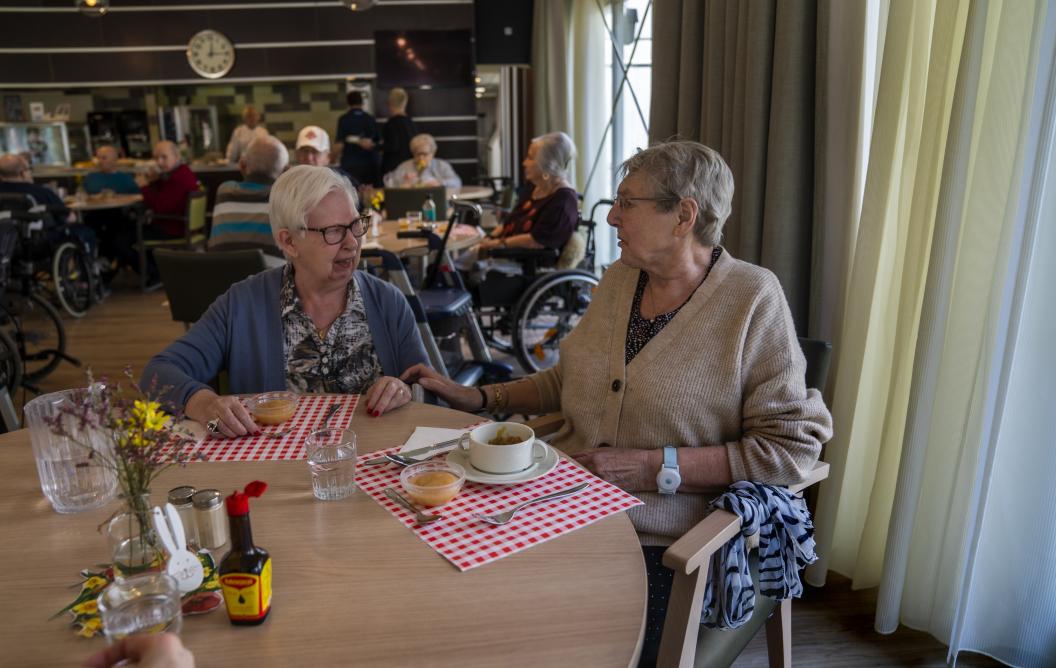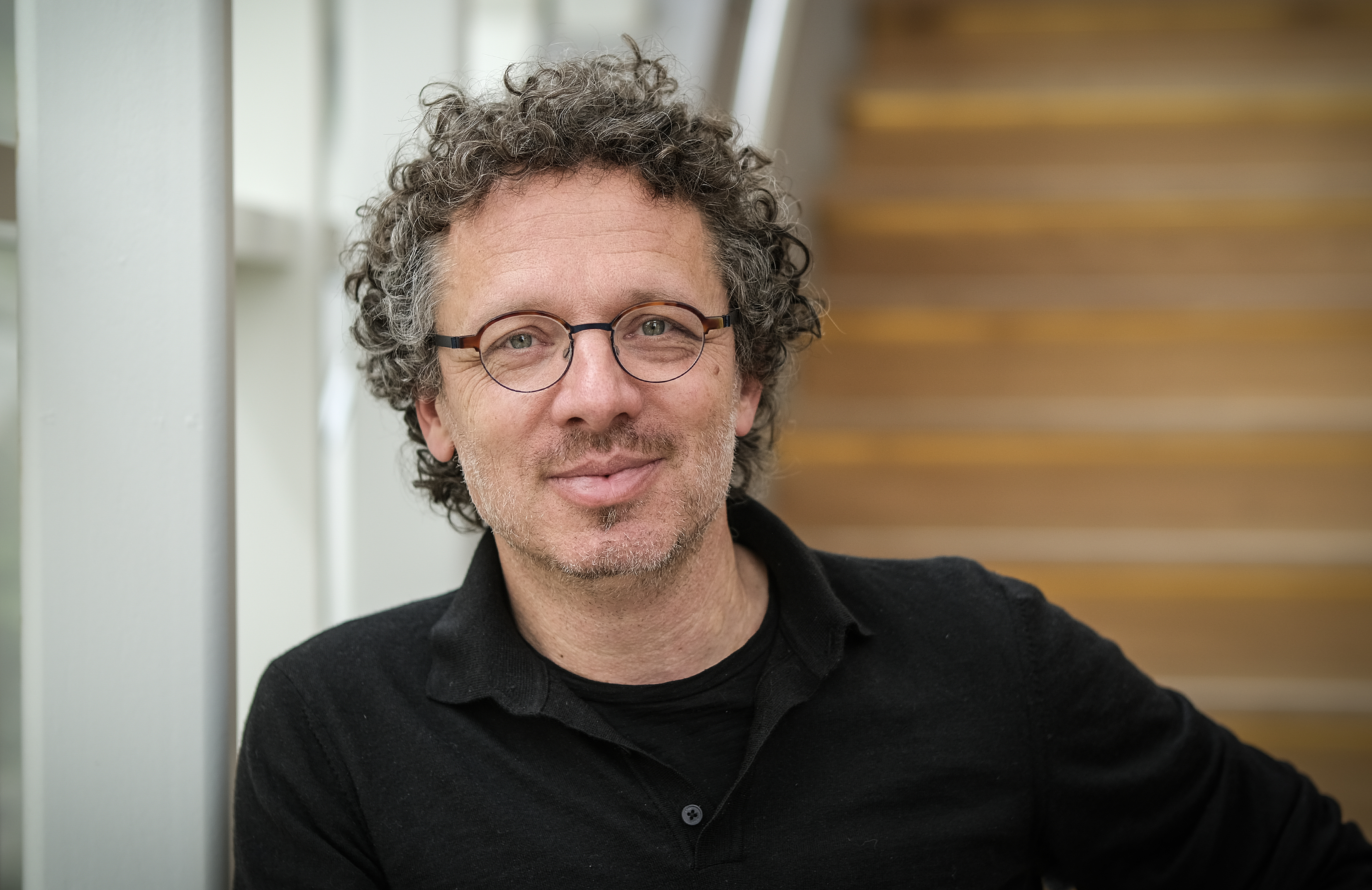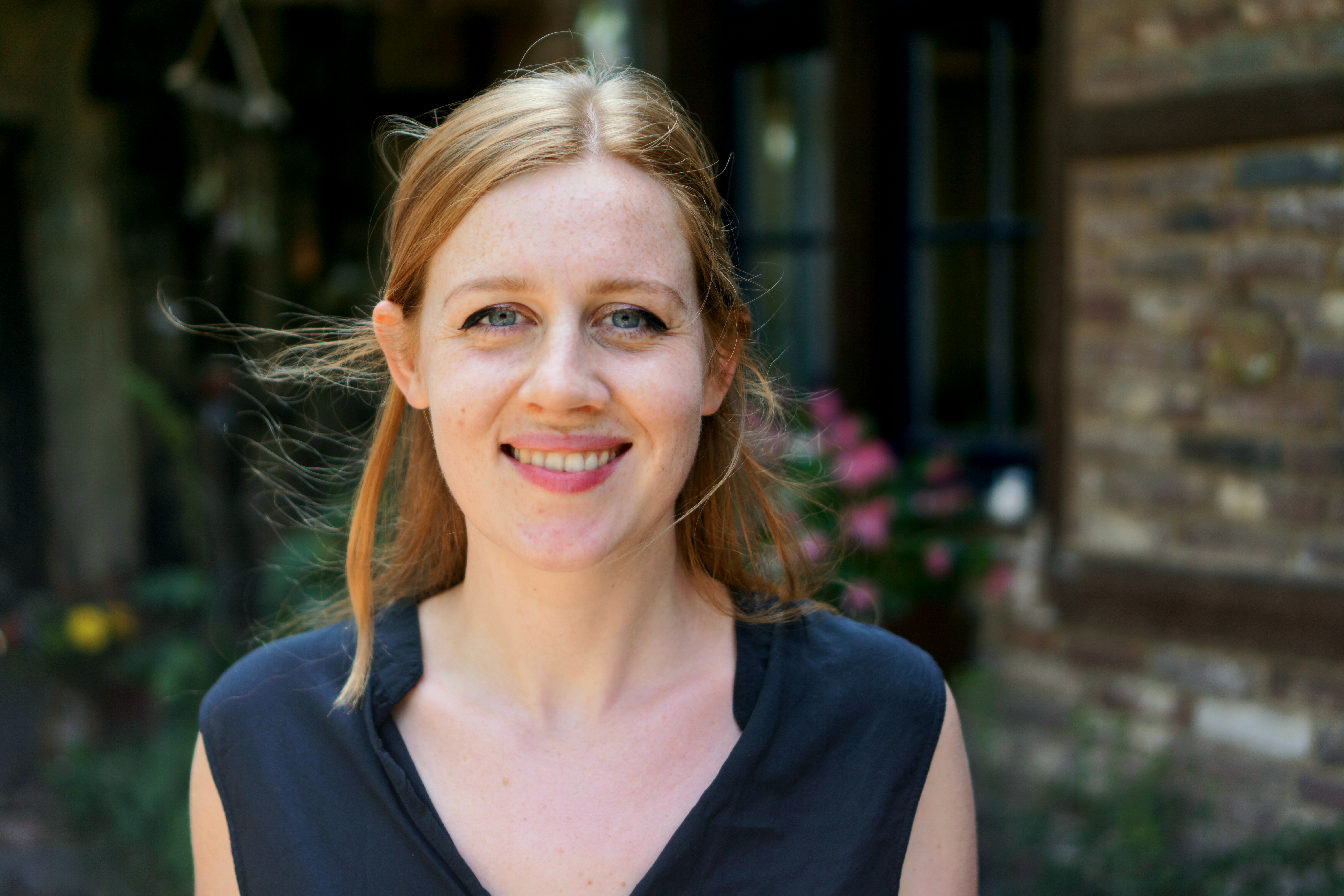Practical solutions for dignified ageing
South Limburg with its ageing population faces considerable challenges when it comes to health and wellbeing. UM research and innovation is already making a real difference. Hilde Verbeek, chair of the Limburg Living Lab in Aging and Long-Term Care, on how to empower older persons and battle the negative image of ageing.
While migration is cushioning the blow somewhat, the Netherlands are ageing – and South Limburg, whose young people tend to move north in search of opportunities, is ageing even faster. Already many parts of the province have between 10 and 16% of residents older than 75 years. Ageing and care is a major societal challenge, especially for Limburg – but it also provides new opportunities.
For more than 25 years now, the Limburg Living Lab in Aging and Long-Term Care has been developing innovations to better address the needs of older persons and their caregivers. In the Living lab researchers study, holistically and practically, the health and wellbeing of older people in partnership with many stakeholders, from the older people themselves to their relatives, patient organisations, private companies, care organisations as well as local, regional and national governments. The Living Lab comprises 27,000 staff and 50,000 clients across home care as well as approximately 185 care locations, such as residential and nursing homes.
In a sort of apotheosis of UM’s approach to research, they are highly interdisciplinary and intensely focused on developing practical solutions that make an immediate impact, in this case, to people’s health and wellbeing. The Living Lab uses scientific linking pins, i.e. senior UM researchers working for one or two days a week in a partner organisation, where they lead interdisciplinary working groups. Together with older people and their caregivers, they identify problems in practice, tailor research questions, and develop and test interventions in practice.
Text continues below the photo.
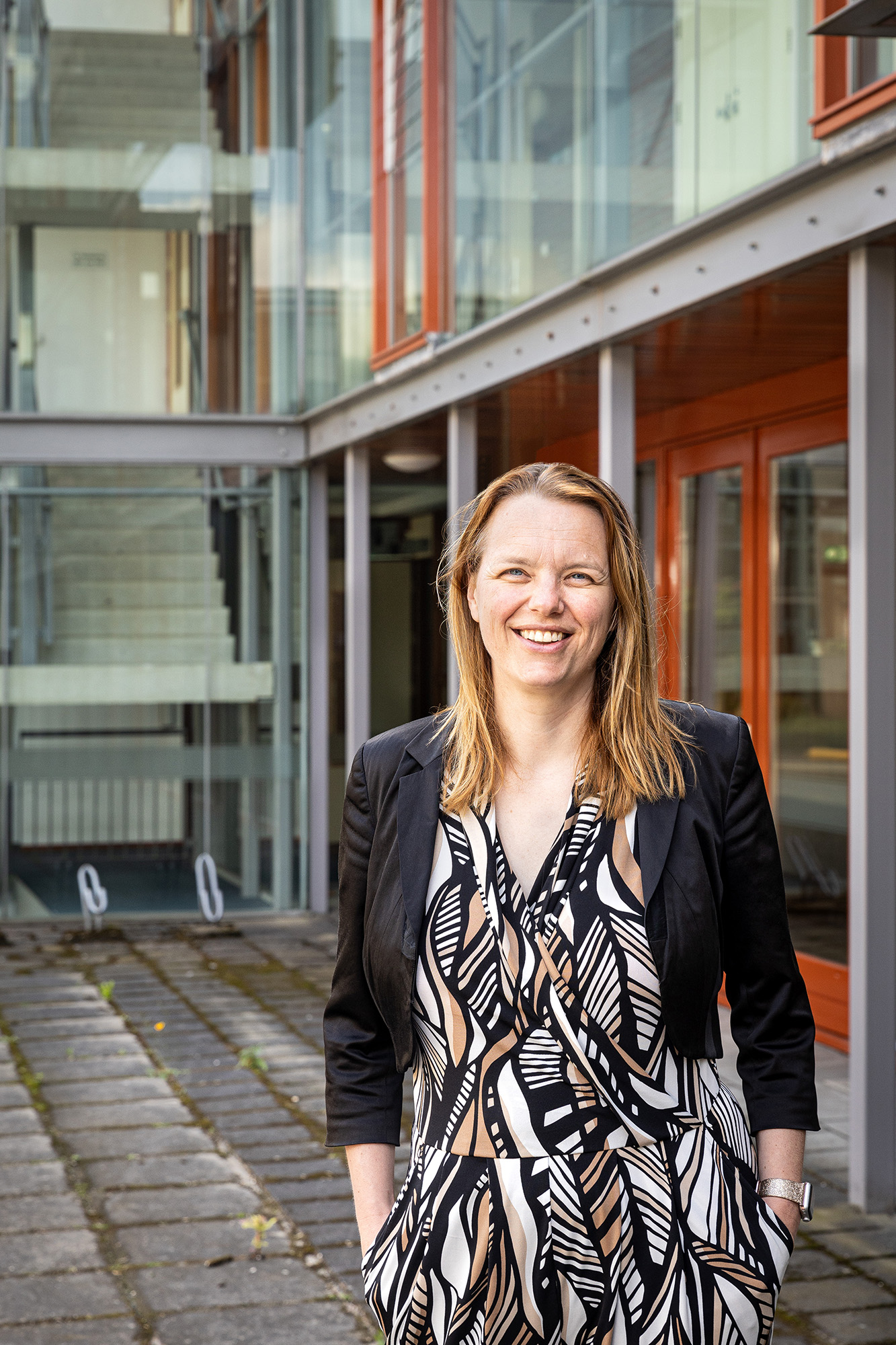
Hilde Verbeek is Professor of Long-Term Care Environments at the Department of Health Services Research, within CAPHRI, Faculty of Health, Medicine and Life Sciences. She is the chair of the Living Lab in Ageing and Long-Term Care.
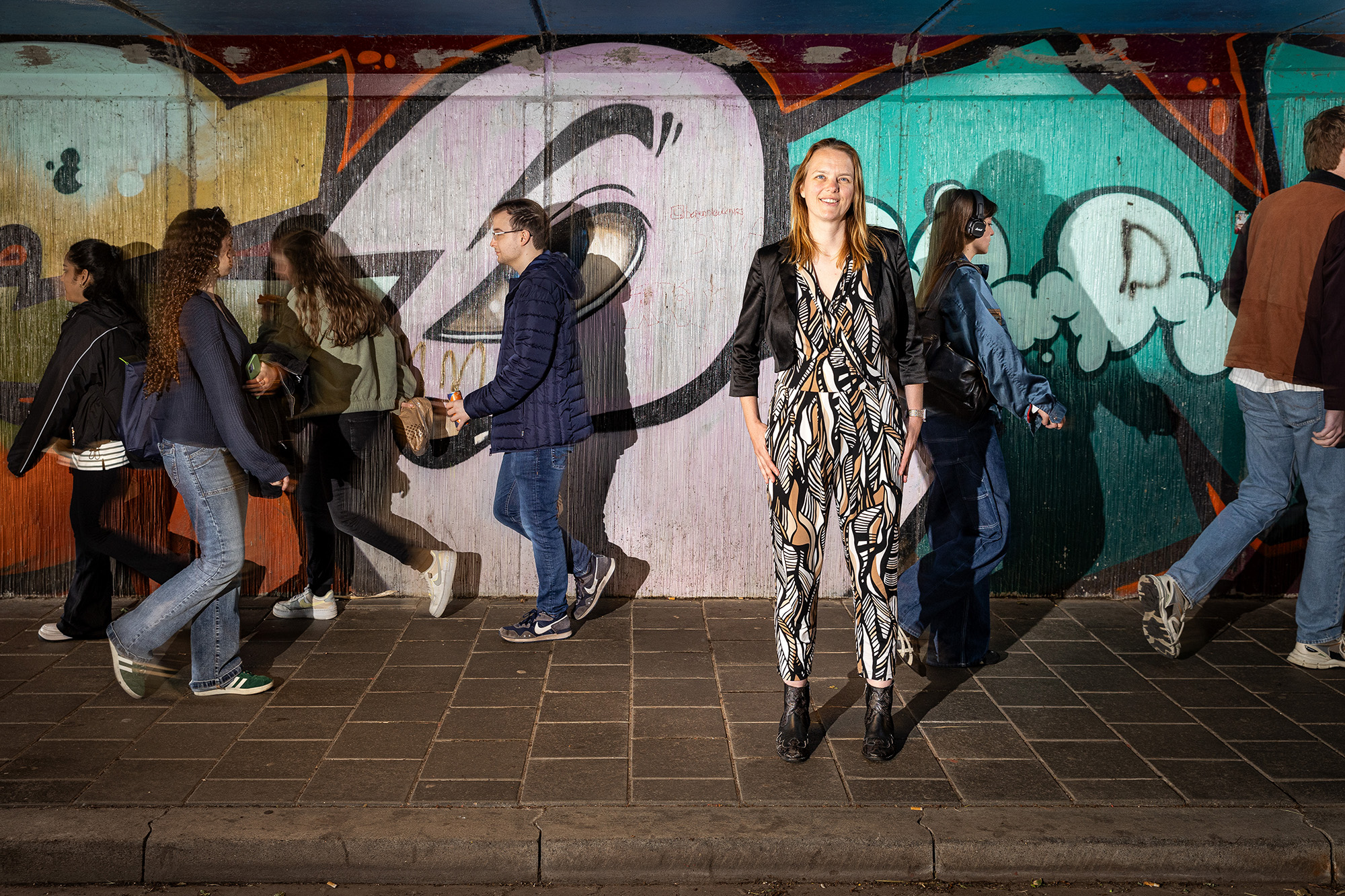
Empowering older persons and carers
Hilde Verbeek’s involvement with the Limburg Living Lab in Aging and Long-Term Care dates back to 2006 and this April, she was appointed chair. “Life can be better than we think for older persons. That’s why we focus on empowering people to have as much space as possible to live the way they want to and to stay as autonomous as possible.” The empowerment also extends to those caring for older persons. “It can be small things, like carers going against established protocols and changing the breakfast routine and seeing that it allows the older people to become more active and take more controls. We want to facilitate such improvements through scientific research.”
This type of care, if done well, is complex, comprising subjects such nursing, gerontology, psychology, medicine, physiotherapy, sociology, education, technology, artificial intelligence and data science. “UM is a great place to do this because it’s a young, dynamic university and we are big on interfaculty collaboration.” There is also an interesting parallel with PBL since the Living Lab looks at complex situations and formulates its research questions accordingly. “We get input from older people and their relatives, from care personnel and so forth – mostly about problems they’re facing but also about best practices and spontaneous innovation. Hospital care has a long tradition of integrating research – but developing a scientific infrastructure for homecare and nursing homes as we did was a genuine innovation.”
Developing a scientific infrastructure for homecare and nursing homes as we did was a genuine innovation.
Considerable impact on many people’s lives
The Living Lab’s reach is considerable. “Between nine long-term care organisations, two vocational training institutes, Zuyd and UM, we cover the whole of Limburg. The model we’ve established has inspired similar collaborations around the country.” The Living Lab’s impact goes far beyond Limburg though. “After the surge of Covid deaths in nursing homes, the government decided to close them to keep a lid on infection rates. But from our research in nursing homes, we found that this led to isolation, and had a negative impact on functioning. After many consultations with the ministry and interdisciplinary research to prove the detrimental effects of the visitor ban, we immediately launched a pilot study, which proved that it was safe to reopen nursing homes with adequate protective measures. Our work eventually changed national policy.”
Another example involves involuntary treatment, e.g. with medication, and physical restraints to avoid injury in nursing homes and for older people living at home. “Our extensive studies found that it’s harmful and not effective.” Presenting their findings also influenced national policy. “These measures are no longer allowed and following our recommendations, there is now a trend towards open wards.” The general approach is to encourage older persons themselves to set the Living Lab’s agenda and to involve frontline staff as partners. “We want everyone to live meaningful lives with all the help they need, irrespective of their situation.”
Text continues below the photo.
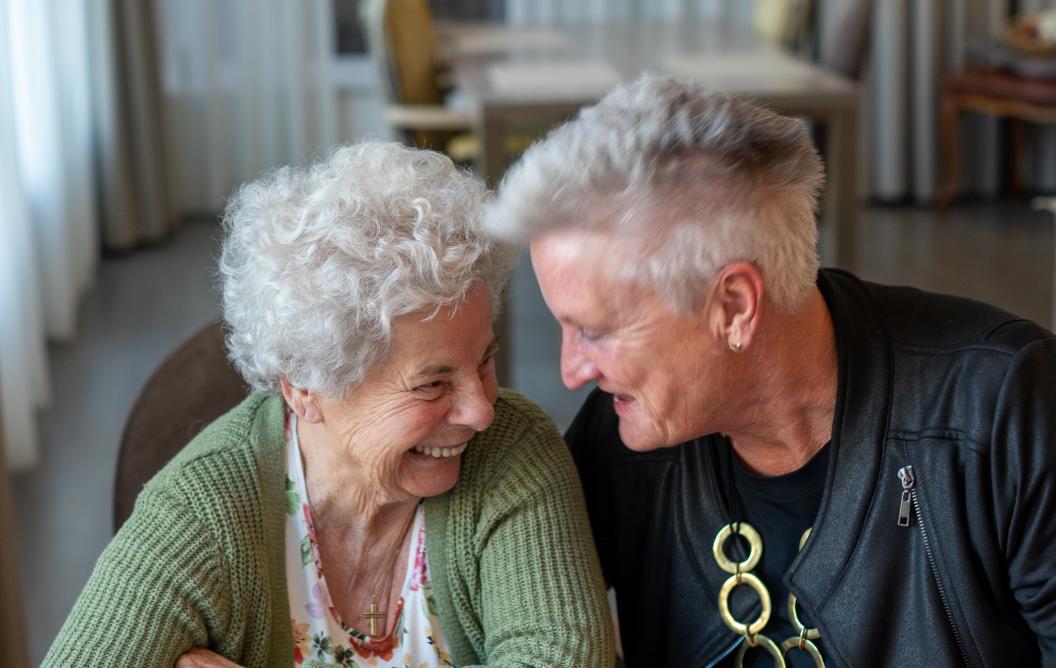
Click on the icon to watch all photos
Sustainable ways forward
Caring for an ageing population will require a rethink, according to Verbeek. “There’s for example a disproportionate burden on mainly daughters of those affected with age-related disease. They are usually primarily responsible to take on roles as the main informal carer, thus missing work, and eventually succumbing to ill health or burnout. In the end, this is unsustainable. We need more inclusive societal models, also when calculating costs of care or addressing impact.” Add to that the labour shortage – both in general and in this sector in particular. “If you calculate based on the current care model, one out in four people would have to work in caring professions to cover our needs over the next decades. That is not sustainable – we need a rethink.”
“By international comparison, the Netherlands has a relatively well-developed long-term care system, but the public perception is quite negative. There is still a cultural stigma around ageing and people want to look away rather than engage.” Ageing though is inevitable; one out of five people will struggle with dementia at some point in their lives. “I think we need a cultural change in the way we look at an ageing population and the opportunities that might bring. Yes, we need to deal with ageing structurally, sustainably – but maybe we should also embrace it more.”
Text: Florian Raith
Portrait photos Hilde Verbeek: Paul van der Veer
Other photos: Harry Heuts
We need to deal with ageing structurally, sustainably – but maybe we should also embrace it more.
Also read
-
Drawing blood, inserting an IV, or looking into the ear; even seemingly simple medical procedures can cause anxiety, pain, and stress in children. According to pediatric intensivist Piet Leroy, comfort and trust are just as important as the medical treatment itself. Therefore, he is researching how...
-
Bas van Hooren conducted NUTRIM research on preventing injuries and on the future of personalized sports. He defended his PhD, June 17th.
-
How do people interact with each other on social media and other online platforms? How do they end up in conflict? And most importantly: how can we prevent these discussions from escalating? PhD candidate Maud Oostindie is researching these questions. On top of that, she is the new ‘Face of Science’...
